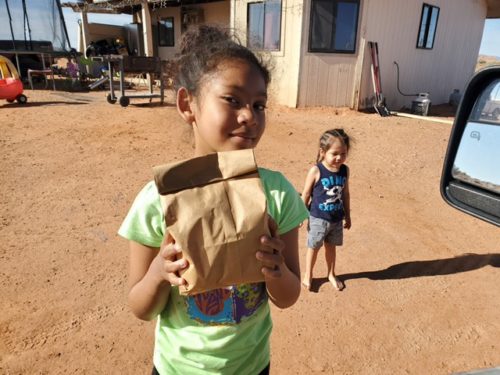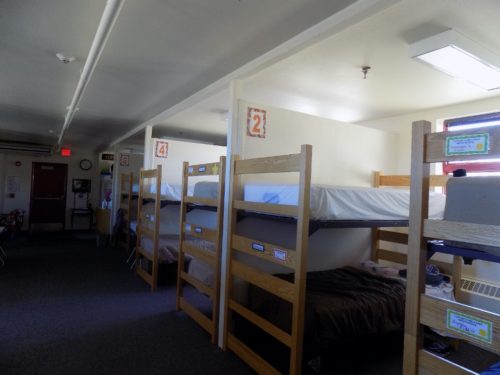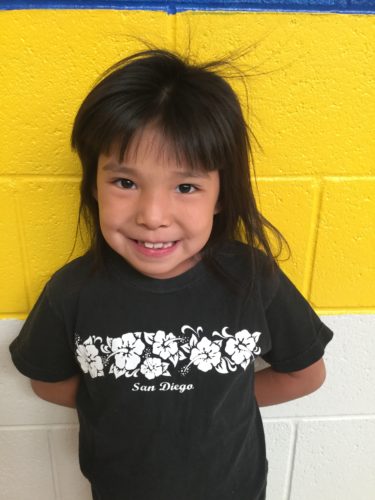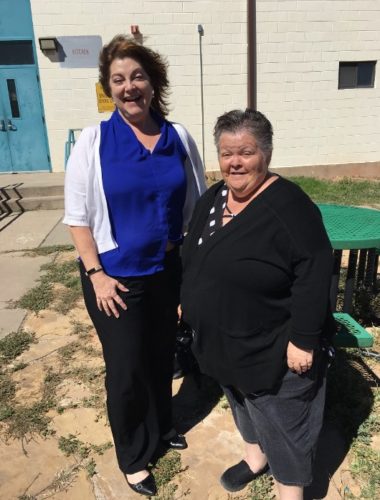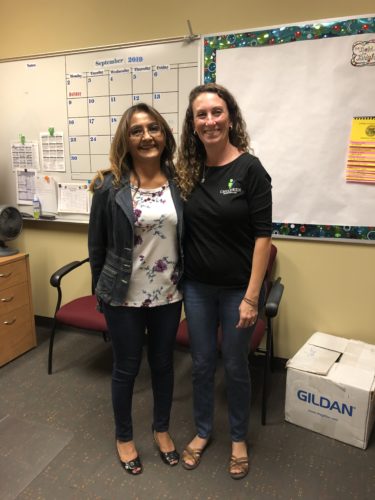I love grocery stores! I admit it. I really do. I find a lot of joy in shopping for food.
Your contribution to our Feeding Programs make our work possible, and it is through your generosity that we are able to fill empty bellies and offer nutrition where there otherwise may be none.
Some of my fondest childhood memories are of trips to the grocery store or food markets with family members. When I was really small, I spent Saturdays with my Aunt Louise and Grandmother Pierce while my parents worked. Every Saturday morning, my aunt would shop for groceries, and she always took me with her. At first, I sat in the basket as she shopped, but as I grew older, I graduated to pushing the shopping cart! I thought I was hot stuff, let me tell you! I clearly recall pushing that buggy down the aisles of our local A&P. I recall the smell of the freshly ground coffee near the front of the store, as well as the wonderful aroma of cakes and pies just out of the oven in the bakery.
In my immediate family, my father did the vast majority of food shopping, and he loved grocery stores probably as much or more than anyone I have ever met. There were six or seven food stores in our small town, and Daddy made the rounds from one to another, looking for bargains and stocking up on deals. Sometimes when my dad was stressed or just needed an out from the responsibilities of daily life, he would say to my mom “Peg, I think I’ll just go to Winn Dixie and look around,” and off he’d go. Sometimes I went with him, and Daddy loved pointing out the bargains – BOGO items (buy one, get one free) and things marked down for clearance.
My folks were not wealthy. They were hard-working folks who sometimes struggled to pay their bills, but we always, always had food to eat, and my childhood memories are of wonderful meals and abundance. Both of my parents were excellent cooks, and I can still taste some of the special dishes they made — my mom’s lemon pie and fresh coconut cake, and Daddy’s fried chicken and chili con carne immediately come to mind. So many memories are of the taste and smell of food, and for me, of course, those magical trips to the grocery store.
It is hard for me to imagine being constantly hungry, but I am painfully aware that there are millions upon millions of people who go without proper food and nutrition on a daily basis. In the United States, 1 in 6 children face food insecurity, and globally, there are over 800,000,000 people who do not know where they will get their next meal. Over 3,000,000 children die each year from hunger and malnutrition. The numbers are astounding, and they are shocking. Sadly, they are reality.
Over 3,000,000 children die each year from hunger and malnutrition. The numbers are astounding, and they are shocking. Sadly, they are reality.
Children Incorporated is working to alleviate some of the suffering that comes from food insecurity. Our international and United States child feeding programs offer nutritious food to thousands of children on a regular basis. As needs arise in the field – whether in a remote Kenyan village or a rural school in Eastern Kentucky – Children Incorporated responds to the calls we receive and provides life-sustaining nourishment to children and families. In Central and Latin America, this may be in the form of bagged rice and beans to feed a family for a month, or in the United States, food distribution through weekend and holiday backpack feeding programs. By whatever means, we are always seeking ways to reach more and more children and to alleviate their hunger.
Your contribution to our Feeding Programs make our work possible, and it is through your generosity that we are able to fill empty bellies and offer nutrition where there otherwise may be none.
Please, consider donating to our Feeding Programs today.

